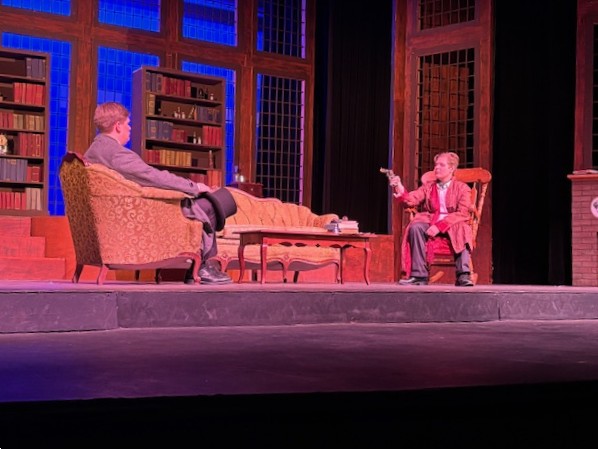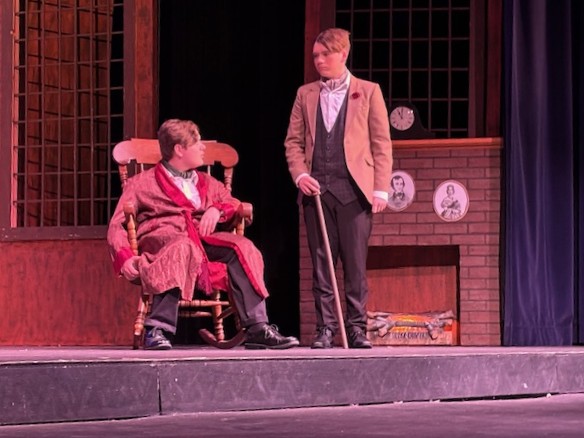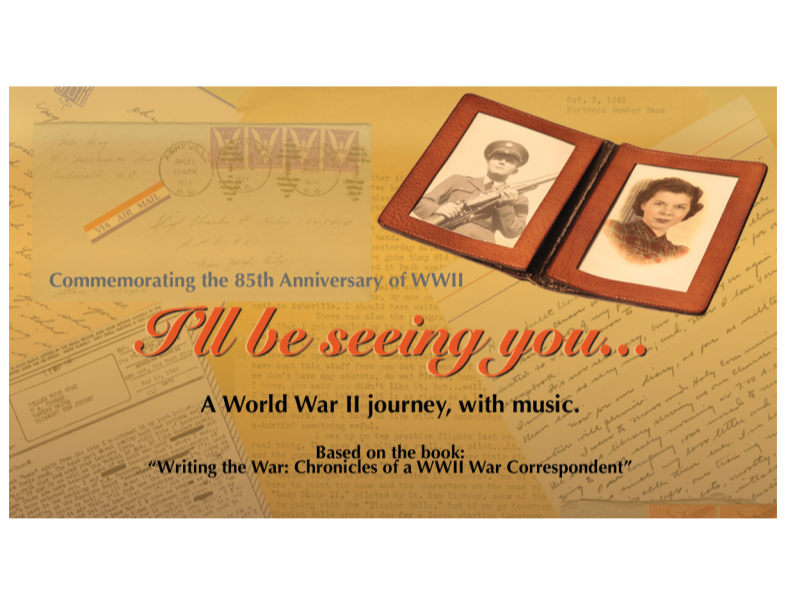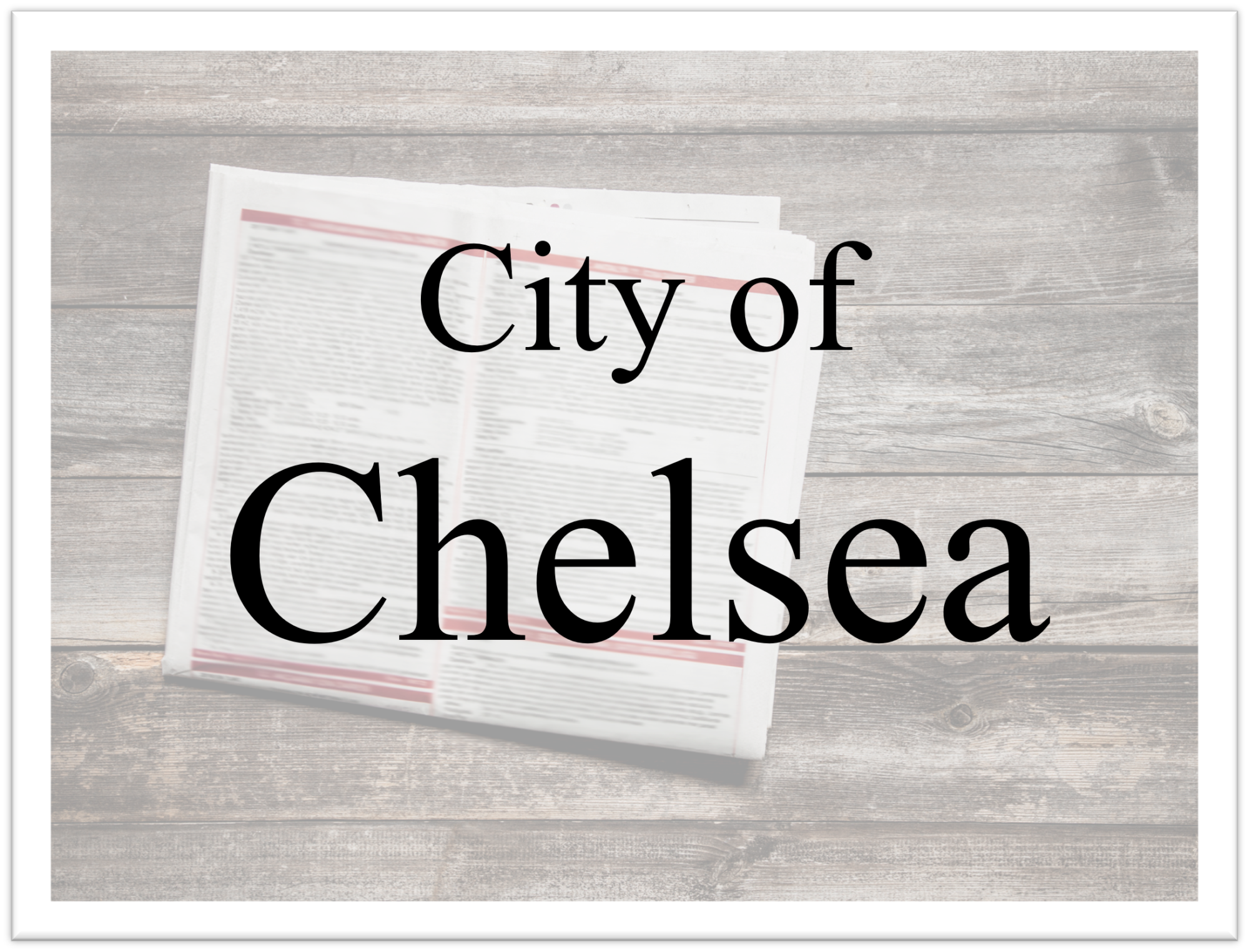Photo: (L-R) Sitting Joshua Gregory (Holmes), Standing Henry Kibler (Watson). Photo by Steve Sheldon
Rivalries have been a part of our lives forever. Palmer v Nicklaus; Bird v Magic, Ali v Frazier, Army v Navy, UM v OSU, Hatfields v McCoys. But one rivalry has existed longer than them all.
Professor James Moriarty v Sherlock Holmes. Audiences got to watch that great rivalry unfold April 26 and 27 at the Washington Street Education Center (WSEC) as the Theatre Guild at Chelsea High School staged Sherlock Holmes by Sir Arthur Conan Doyle and William Gillette. In the original movie series, Holmes was played by Basil Rathbone and Watson by Nigel Bruce. In this production, Joshua Gregory portrayed Holmes while Henry Kibler was the affable Dr. Watson.
Playing classic characters with British accents is difficult, but both Gregory and Kibler did an admirable job. They were joined by Jordan Nelson playing the imposing and at times scary Professor Moriarty. Nelson exudes confidence and is clear in his aim to be rid of his arch enemy, Holmes.
The set designed by Izze Bloomensaat works well. It looks stately and very formal, as it should have been in the 1890s in England. The set allows ample room for the actors to move about, using the setting to highlight the story. Moriarty is aided in his plans by the Larrabees, Madge and James, played by Carolyn Klink and Connor Dennis.

As Artistic Director Rachael Slupe noted, “…when it comes to observing, it goes beyond just looking. It includes comparing the observation to life experiences, allowing yourself to listen, and considering the differences and what may cause that.” And that is the key to trying to understand Sherlock Holmes: nothing is as it appears to be. And that was a trademark of Sir Arthur Conan Doyle.
Sherlock Holmes, the play, has been revised many times. Though the story was based upon the work, words and characters of Sir Arthur Conan Doyle, William Gillette wrote the play. Communication between Gillette and Doyle has been documented. Gillette asked if he could give Holmes a love interest, marry him or even kill him. Doyle responded, “Do with him as you will.” Though initially, he was not thrilled with Holmes having a love interest.
However, the love interest created a vulnerability for Holmes and an opportunity for Moriarty. The young actors in the Theatre Guild did a nice job with difficult material. The challenge confronting the young actors was that everyone came into the theatre with a notion of what Sherlock Holmes, Dr. Watson, and Professor Moriarty were like. Their task was to overcome those preconceived notions. And, for the most part, they did.
And the important thing about all the Sherlock Holmes stories, in the end, you are confident we know how everything turned out. And, of course, we would be wrong. That is the art of writing a mystery story. We all walked out of the theatre, confident that we had all the answers. But …
Did we?






 8123 Main St Suite 200 Dexter, MI 48130
8123 Main St Suite 200 Dexter, MI 48130


